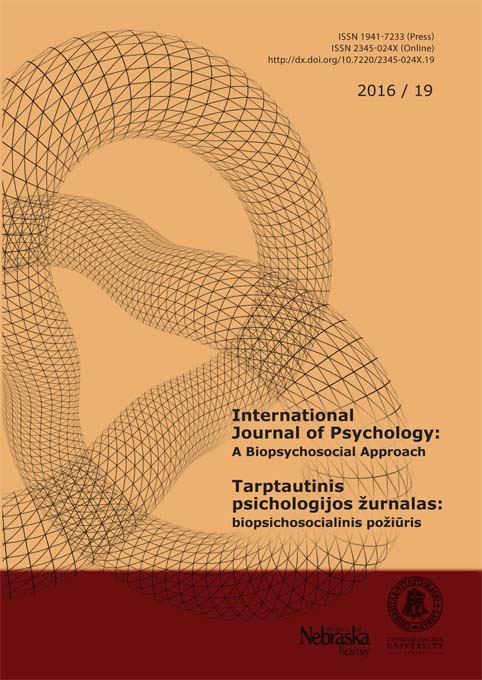Psychological Capital, Self-Compassion, and Life Satisfaction of Unemployed Youth
Psychological Capital, Self-Compassion, and Life Satisfaction of Unemployed Youth
Author(s): Eglė Sabaitytė, Aistė DiržytėSubject(s): Individual Psychology, Developmental Psychology, Psychology of Self
Published by: Vytauto Didžiojo Universitetas
Keywords: psychological capital; self-compassion; life satisfaction; unemployed youth;
Summary/Abstract: Background. Youth unemployment is currently one of the biggest problems in European society. It can reduce the economic prosperity and psychological well-being of unemployed youth. Positive psychological capital (PsyCap) and self-compassion are linked with a number of positive constructs. Those include satisfaction with life, positive affect and personal initiative to make needed changes in one’s life. Thus, PsyCap and self-compassion could be promising resources enhancing the psychological well-being of unemployed youth. The aims of the study are: 1) to reveal relation between PsyCap and self-compassion with life satisfaction of unemployed youth; 2) to investigate the difference between PsyCap and self-compassion for higher and lower levels of life satisfaction among unemployed youth. Methods. The sample consisted of 80 unemployed Lithuanians aged 19-29 (38% male, 62% female). The Psychological capital questionnaire (Luthans et al., 2007), Satisfaction With Life scale (Diener et al., 1985), and Self-Compassion scale (Neff, 2003a) were used in the study. Results. Positive and significant correlations were found between PsyCap and life satisfaction. Moreover, we found positive and significant correlations between PsyCap components and all positive self-compassion components. Although life satisfaction positively correlates with total self-compassion, however, not all positive components of self-compassion correlate with the life satisfaction of unemployed youth. Furthermore, unemployed youth highly satisfied with life had higher levels of PsyCap and self-compassion compared to unemployed youth who were less satisfied with life. Conclusions. Our findings revealed positive correlations between PsyCap and self-compassion with life satisfaction of unemployed youth. Future research is needed in order to explore the causality between variables.
Journal: Tarptautinis psichologijos žurnalas: biopsichosocialinis požiūris
- Issue Year: 2017
- Issue No: 19
- Page Range: 49-69
- Page Count: 21
- Language: English

